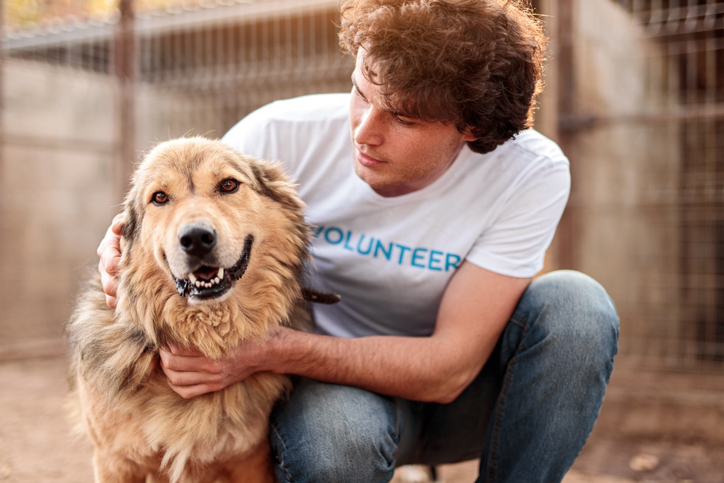Pet rescue organizations play a critical role in today’s society by helping to rescue, care for, and find homes for abandoned, abused, and neglected pets. These organizations operate on a non-profit basis and rely on donations, volunteers, and adoption fees to carry out their work.
Here are some of the important roles of these organizations.
- Rescuing animals: Pet rescue organizations work to rescue animals from abusive, neglectful, or dangerous situations. They provide temporary care for these animals until they can be adopted into permanent homes.
- Providing medical care: Many rescued animals require medical attention, and pet rescue organizations provide the necessary care and treatment to help them recover from illness or injury.
- Sheltering animals: Pet rescue organizations provide temporary housing for animals until they are ready for adoption. They ensure that the animals are safe, comfortable, and well-fed during their stay. Many Volunteers take these pets into their home and foster them. It is the responsibility of the Foster Family to identify any behavioral issues and socialization issues the pet may have. The Foster will also provide the necessary love and guidance many of these pets need before they can be placed in their furever home.
Many of these Foster Families become “Foster Failures” because they can’t part with the pet that they have grown to love so much. I was a “Foster Failure” with Bella. I cannot imagine what life would have been without this loving soul. - Educating the public: Pet rescue organizations raise awareness about the importance of responsible pet ownership, including spaying and neutering, regular veterinary care, and proper nutrition.
Some of these organizations collaborate with local pet supply stores showcasing these pet’s during “Adoption Days”. - Finding homes for animals: One of the most important roles of pet rescue organizations is to find permanent homes for the animals in their care. They carefully screen potential adopters to ensure that the animals are placed in safe, loving homes.
I have been on both sides of this: first as an Adoption Coordinator for a Golden Retriever Rescue. I would visit the home of families that wanted to adopt one of the rescue’s Golden Retrievers. Most of the homes I visited had recently had a Golden pass and they wanted to welcome another Golden into their home. It was an extremely rewarding “job”. I also got to deliver Goldens to their new homes. Never a dry eye when the families welcomed their new pet into their home.
We have also had Adoption Coordinators visit our house either in person or on a facetime call.
Sasha was located in San Antonio, Texas so I had a facetime call with their Adoption Coordinator. She needed to make sure that our fence was tall enough so that Sasha couldn’t jump over it. Great Pyrenees can easily jump fences. - Advocating for animal welfare: Pet rescue organizations advocate for animal welfare at local and national levels. They work to change laws and policies to improve the lives of animals and to prevent animal abuse and neglect. They are the voices of the voiceless.
Pet rescue organizations incur SIGNIFICANT day to day costs providing care for the animals they rescue.
Listed below are some of the expenses:
- Food and supplies: Pet rescue organizations need to provide food, bedding, toys, and other supplies for the animals in their care.
- Veterinary care: Many rescued animals require medical attention, including vaccinations, spaying or neutering, and treatment for illnesses or injuries.
- Shelter and utilities: Provide a safe and comfortable living space for the animals in their care, which includes rent, utilities, and maintenance costs.
- Staff and volunteer salaries: Pet rescue organizations may need to hire staff to care for the animals and coordinate adoptions. They may also rely on volunteers who require training, supervision, and recognition for their time and effort. Many pet rescue organizations are 100% volunteer based and no salaries are paid.
Many of the organizations we donate to are 100% volunteer based and every dollar donated is spent on the pets in their care. - Transportation: Pet rescue organizations need to transport animals to and from veterinary appointments, adoption events, and other locations.
These costs can add up quickly, pet rescue organizations rely on donations, fundraising events, and adoption fees to cover their expenses. Without adequate funding, it can be challenging for these organizations to provide the level of care that animals need and deserve.
Despite the high costs of pet rescue, the benefits of these organizations to society, animals, and the environment far outweigh the expenses. By rescuing and rehoming animals, pet rescue organizations help reduce animal overpopulation, prevent cruelty and neglect, and promote responsible pet ownership.
We encourage you to ADOPT DON’T SHOP!
My Pet’s Health donates 10% of each sale to pet rescue organization through our Champions Program. https://www.spencerbella.com/champions-program/




